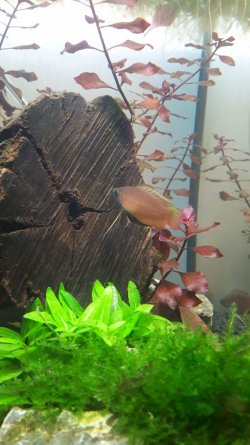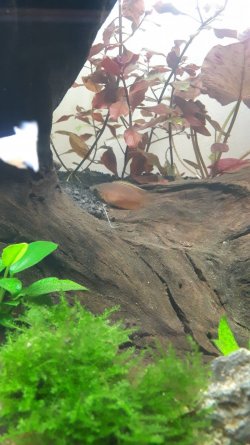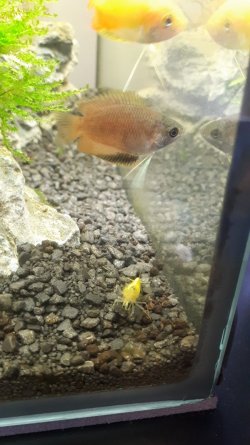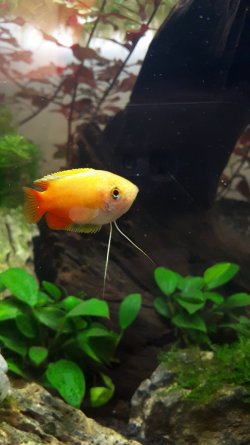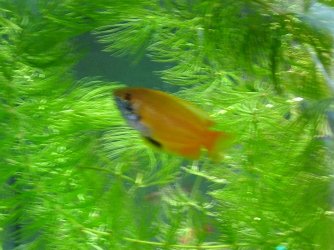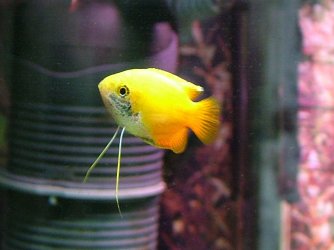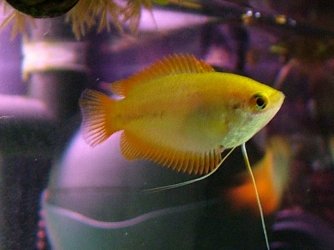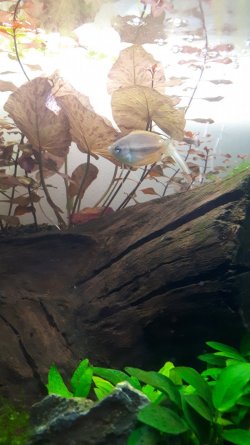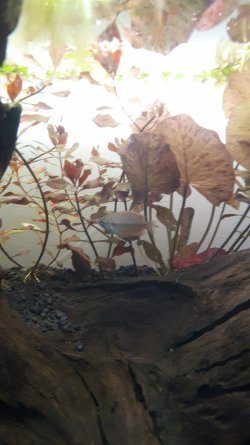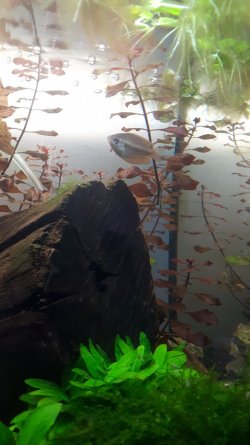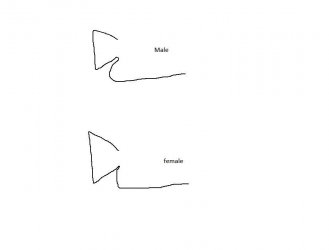Heya! so I've got three honey gourami, one male? in sunset colours who's starting to show some black on the cheeks, one wild coloured variant lady?? who I got from a really renowned fish store but who is now starting to show a black nose to anal fin and white dorsal, is she a he?? and another female(???) wild type who is now also growing a black bottom fin, leaving me confused and worried because the "ladies" are starting to row and I am afraid they are males, of course I can not have possibly three males in my tank so if anyone actually knows about the real wild colour variants and could offer me some insights please do! if they are boys I'll have to return them 
